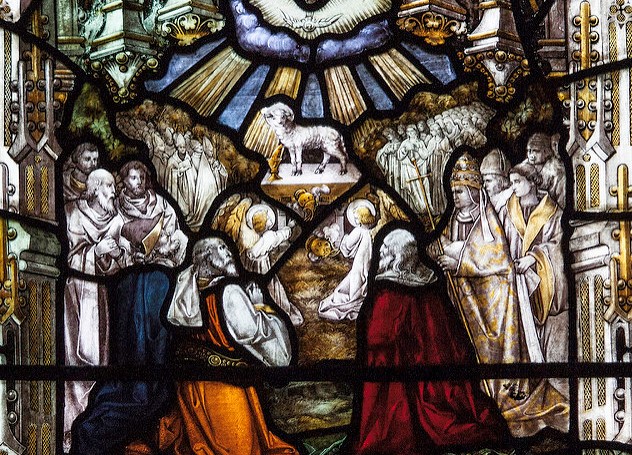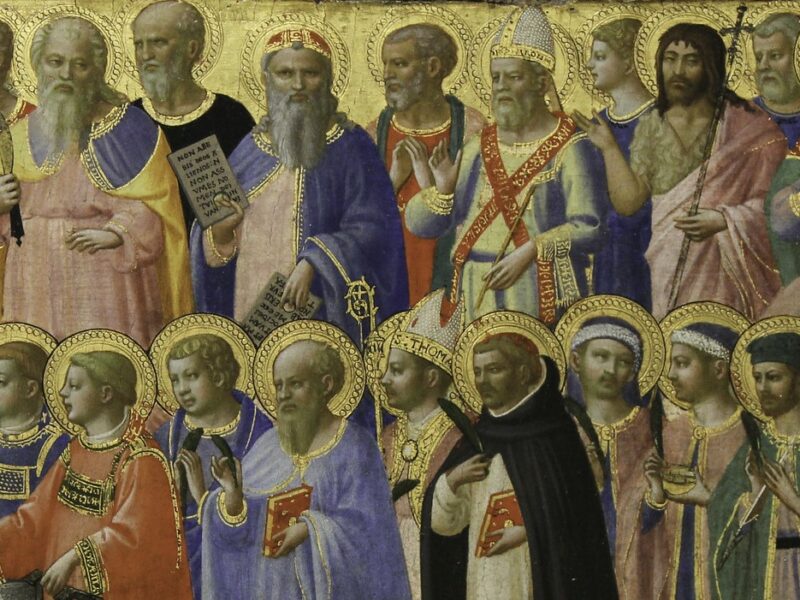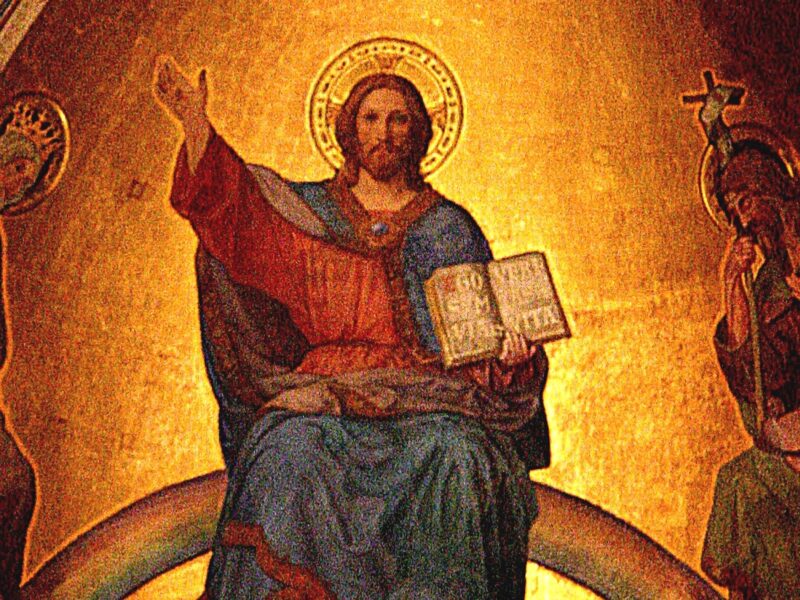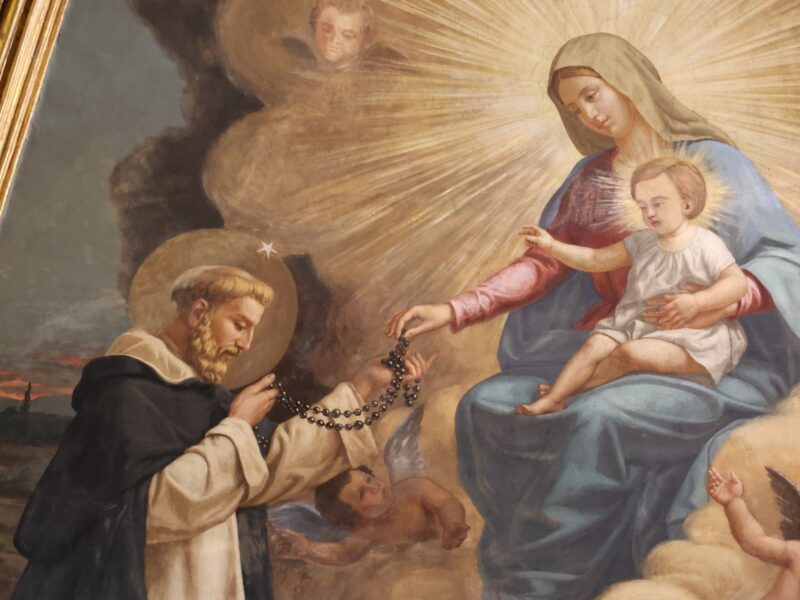
With Hands Outstretched
Twenty-Second Sunday of the Year | Fr Allan White describes how through the presence of Jesus Christ in the Eucharistic Banquet we come to see our true humanity.
Jesus went to a banquet given on the Sabbath to the house of a Pharisee. Jesus was on trial. People were watching him to see what kind of person he was. The irony is, of course, that he was also watching them. They were concerned about who occupied the coveted place of honour. The place of honour is literally, the first couch, at the highest kind of formal meal, a reclining feast. We are watching a social drama. The dining room was a theatre. The closer to your host, the more important you were. Place at dinner showed position in society. All these respectable men wanted recognition. Shame was feared most. Jesus warns them that it is easy to be shamed, if you make a bid for a high place and then you have to give it up. There is nothing more bitter for a pushy person than reaching too far and being exposed. When the mask cracks what sorrow and pain is clear for all to see. We have seen enough humiliated politicians being carted off to prison whilst all their former friends who have eaten their bread, drunk their wine, done their favours and benefited from their patronage, go to ground and refuse to know them anymore. The highest place can be quickly changed for the lowest place and there is no shortage of gloating onlookers happy to say ‘I always knew he was a crook.’ I knew what he was really worth.
The dining room is a microcosm of the world, reflecting the accepted order in it. For the host the occasion was a mirror in which he could see his own power and privilege reflected. He was at the center, this artificial world turned on the host who called it into being. Wanting recognition and the trappings of fame is actually a failure in proper self-love and self-worth. This banquet is an exercise in narcissism, which is so viciously at the center of our own public life. To be a narcissist is to be self-absorbed. Your heart cannot connect with any others. Narcissus looked into a still pool and saw his own image reflected and became captivated by it. The banqueters look at the gathering in order to see themselves reflected in the esteem and acceptance of the others. They are looking for their own true image, but the true image of humanity is there with them. Here is what is to be truly human: Jesus. They are watching him but they cannot see him, because they are too taken up with what people will think.
What people will think sometimes stops us from doing good; it can make us ashamed of our faith; it can even bring us to deny Jesus. When we are concerned about what people think we are actually asking what do they think I am worth? The answer to that question is on every altar and in every Christian Church. It is the crucified Christ. This is what you are worth. This much love. This much sacrifice. If you truly believe that then you will not give a care what people think and you will be keen to share the secret of our faith.
Jesus shifts and shakes the boundaries of this world dissolving these fragile patterns of solidarity and recasting them in a new mould. The concept of personhood is entirely recast through the grace of the incarnation. That is why those at the margins are to be invited to share in the banquet of the kingdom; the Eucharistic banquet which is a symbol of the values of the kingdom. Those who cannot repay are specifically invited. They are invited precisely because they cannot offer anything in return. The host’s pleasure comes from the sheer act of giving in the generous pouring out of hospitality. Just that pouring out which is accomplished on the cross and made available to us in the breaking of the bread and the pouring out of the cup in the Eucharistic banquet where all are beggars, even those who minister. We all come with our hands outstretched. We are invited precisely because we have nothing to offer. It is not our banquet. The Lord is the host. When he looks at our Eucharistic banquet he sees his own life reflected back at him. It is the life of the Body of Christ celebrating one glorious free lunch.
Readings: Ecclesiasticus 3:19-21,30-31 | Hebrews 12:19-19,22-24 | Luke 14:1,7-14
The above image is from a stained glass window in St Nicholas’ Cathedral in Newcastle.
Sorry, the comment form is closed at this time.



A Website Visitor
Excellent Sermon. One of the best that I have read. God bless you
A Website Visitor
Thank you, Fr Allan for a wonderful homily!
A Website Visitor
This was an exceptional homily, and was very useful to me in preparing my own. Thank you, Fr Allan.